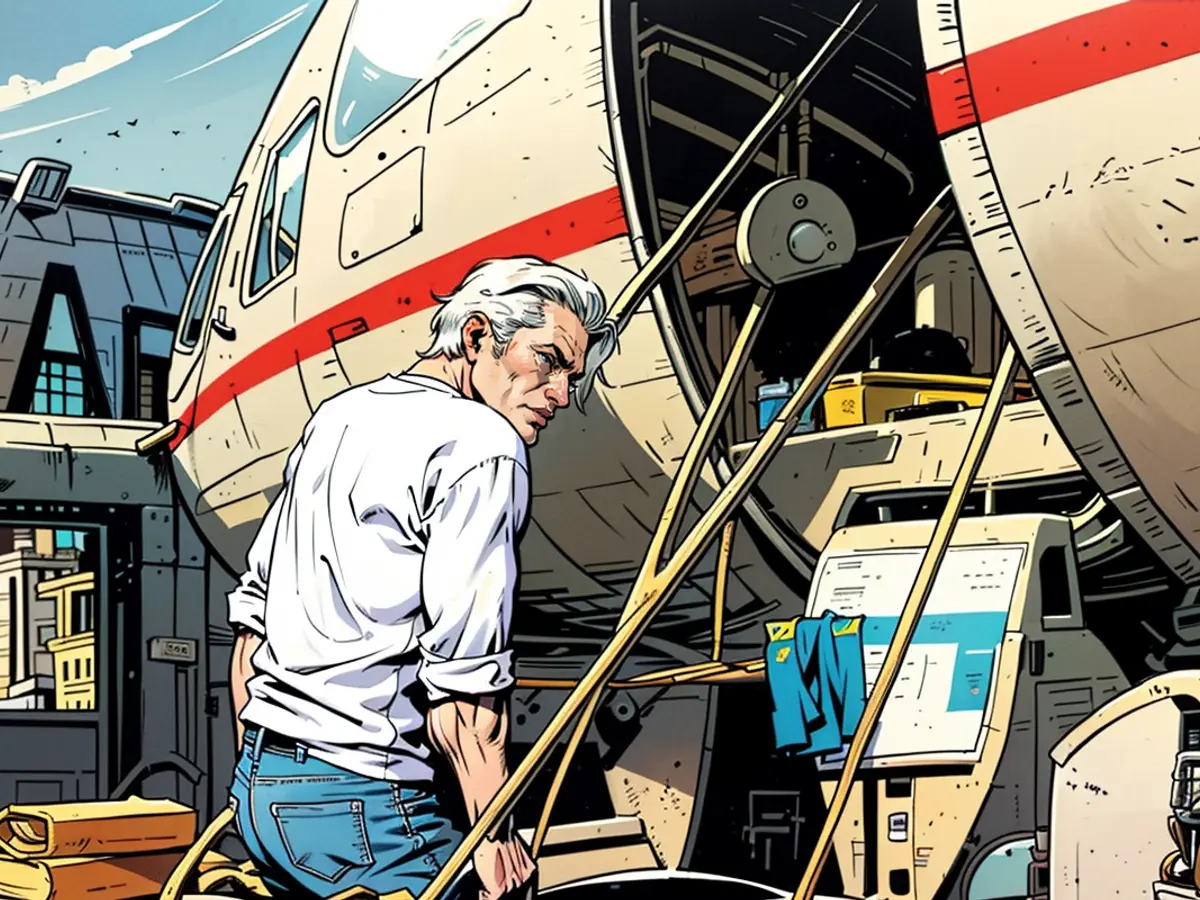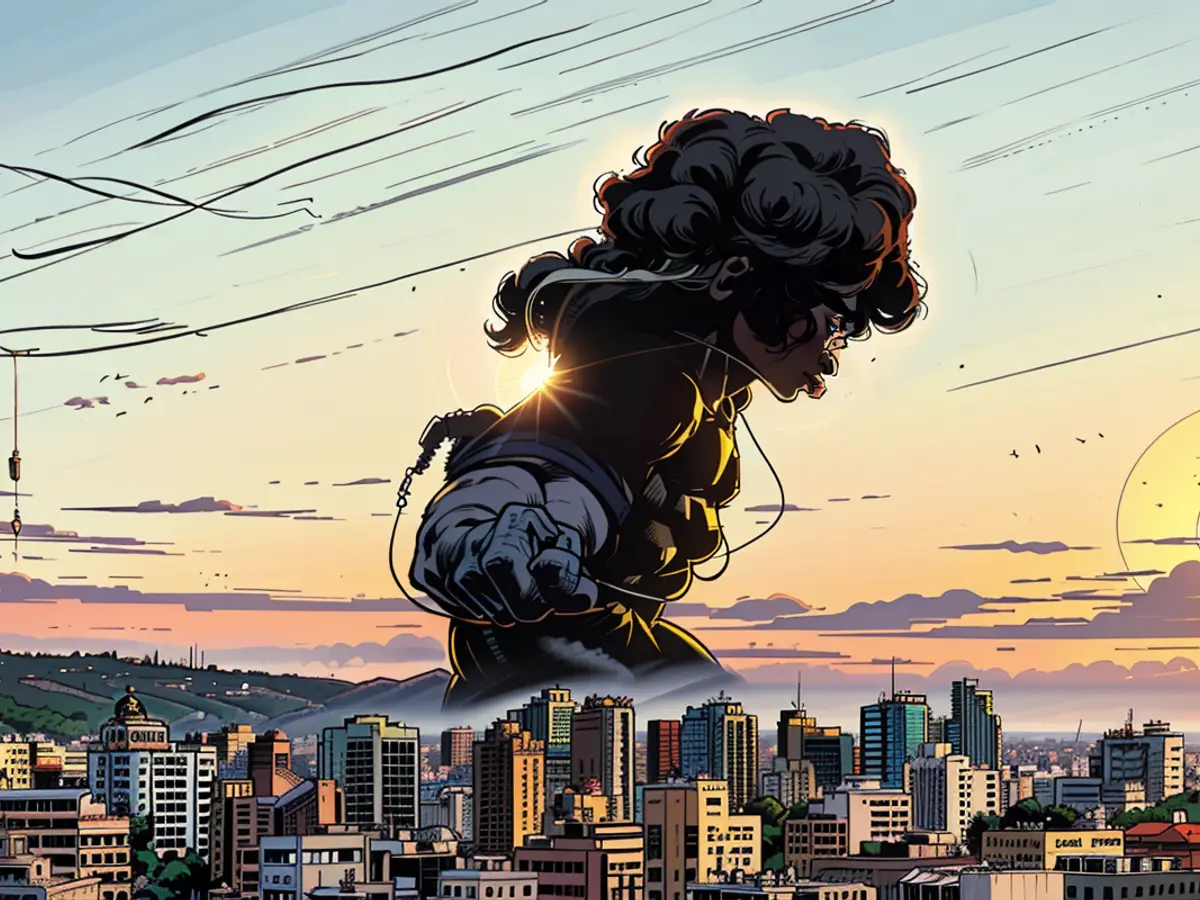Julian Assange, embroiled in a 12-year-long legal fight, is set to return to Australia. Here's a summary of his alleged plea agreement and release terms.
The contentious individual spent the last five years behind bars in a maximum-security UK prison, with an additional six and a half years in the Ecuadorean embassy in London, seeking to evade arrest that could potentially result in a life sentence.
On Monday, Assange, age 52, agreed to plead guilty to a criminal charge related to his purported part in one of the American government's largest leaks of classified documents following his whistleblowing website's publication of around half a million secret military documents about the US wars in Iraq and Afghanistan.
This plea arrangement concludes a prolonged legal ordeal, allowing Assange to escape incarceration in the US and return to Australia as a free man, albeit after a court appearance in a remote Pacific US territory.
Here's what we're aware of:
Where is Assange currently?
Assange reportedly departed London's Stansted airport on Monday following his release on bail from prison, as stated in a communique from WikiLeaks on Tuesday.
"Julian Assange is a free man," WikiLeaks announced. "He left Belmarsh maximum security prison on the morning of 24 June, after serving 1,901 days there."
Under the terms of the agreement, American Justice Department prosecutors will seek a 62-month sentence - equivalent to the time Assange served in the United Kingdom while contesting extradition. This jail term would be credited, enabling Assange to return to Australia immediately following his court appearance in a Pacific US territory. The arrangement must still be endorsed by a federal judge.
Because Assange was reluctant to tread on the American mainland to submit his guilty plea, a judge will conduct the hearing and sentencing together on Wednesday in Saipan, in the Northern Mariana Islands, according to a letter submitted by the prosecutors.
A US territory located roughly 6,000 kilometers (3,700 miles) west of Hawaii, the Pacific island chain hosts a federal court district in its capital, Saipan. The location is also closer to Australia, where Assange is a citizen and is expected to return to after the court hearing, as stated by the prosecutors.
What was Assange accused of?
Assange was a target of American law enforcement for espionage charges stemming from Wikileaks' publication of hundreds of thousands of sensitive military and government documents provided by former Army intelligence analyst Chelsea Manning in 2010 and 2011.
The US asserted that Assange endangered confidential sources by releasing the raw cables and had been seeking his extradition for years. He faced 18 charges associated with the breach and potentially faced up to 175 years in prison. British authorities had requested assurances from the US that he would not be subjected to the death penalty.
Assange initiated WikiLeaks in 2006 as an online platform to anonymously publish materials, including the US military's Guantanamo Bay detention camp operation manual and internal documents from the Church of Scientology.
In 2010, WikiLeaks gained international attention when it published a video claimed to show a 2007 US helicopter attack in Iraq. Soon afterward, it released thousands of classified US military documents about the wars in Iraq and Afghanistan, as well as a cache of diplomatic cables.
Assange previously referred to these documents as "compelling evidence of war crimes" committed by US-led coalition and Iraqi government forces.
The extradition dispute
Assange maintained that the case against him was politically motivated, claimed he would not receive a fair trial, and argued that his extradition would violate the European Convention on Human Rights.

Free speech advocates criticized the extradition attempt, stating it would have a chilling effect on press freedom.
In August 2010, Assange was accused of sexual assault in Sweden and faced an international arrest warrant. He disputed the allegations as "a smear campaign" and refused to travel to Stockholm for questioning.
He turned himself in to British authorities but, while out on bail in 2012 as he appealed extradition to Sweden, Assange sought refuge in the Ecuadorean Embassy and requested political asylum.
During his time in the embassy, WikiLeaks continued to release data, including in 2016 when it published thousands of emails that were apparently hacked from the Democratic National Committee and emails stolen from the private email account of Hillary Clinton's campaign chairman, John Podesta, on the eve of the US election.
Over time, his relationship with his host soured, and Ecuador's president faced pressure from the US to expel him from the diplomatic safe haven.
In 2019, Assange was taken from the embassy by London's Metropolitan Police on an extradition warrant from the US Justice Department, spending the subsequent five years in isolation in a 3- by 2-meter cell at Belmarsh prison.
Known for housing infamous terror suspects such as the radical Egyptian cleric Abu Hamza al-Masri within its high-security unit, Belmarsh prison has capacity for more than 900 inmates.
Demand for Assange's release
Recently, there has been increased pressure for Assange's case to be dismissed.
In May, London's High Court ruled that Assange had the right to appeal in his final challenge against extradition to the US, and US President Joe Biden hinted at a possible deal proposed by Australian government officials to return him to Australia.
The UN special rapporteur on torture and Amnesty International called on the United Kingdom to halt the possible extradition, expressing concerns about the potential for abuse and other ill-treatment if Assange was sent to the US.
Stella Assange, Assange's wife, posted on social media upon his release, "Julian is free!"
"Words cannot express our immense gratitude to YOU - yes YOU, who have all mobilized for years and years to make this come true," she wrote.
Ex-president of Ecuador, Lenin Moreno, expressed satisfaction that WikiLeaks founder Julian Assange wouldn't be extradited to the U.S. Moreno terminated Assange's asylum back in April 2019, which had enabled him to reside at the Ecuadorian embassy in London.
Various leaders, including Presidents of Colombia and Mexico, rejoiced over Assange's release. Colombian President Gustavo Petro remarked, "Imprisoning and mistreating Assange on a global scale was an assault on freedom of the press."
CNN's journalists like Lucas Lilieholm, Manveena Suri, Lauren Said-Moorhouse Claudia Rebaza, Katelyn Polantz, Holmes Lybrand, Evan Perez, Devan Cole, Mauricio Torres, and Stefano Pozzebon cooperated in the reporting.

Read also:
In this legal agreement, Julian Assange is set to avoid serving time in an American prison, allowing him to return to his native Australia after a court appearance in a Pacific US territory. The world will closely watch the outcome of this case, given Assange's role in releasing classified documents that sparked global controversy.
In the wake of his release, Assange will return to the country where he was born, signifying a significant moment for his supporters and critics alike. His case has been a subject of intense global interest due to his actions as a publisher and the implications they had on international relations.








